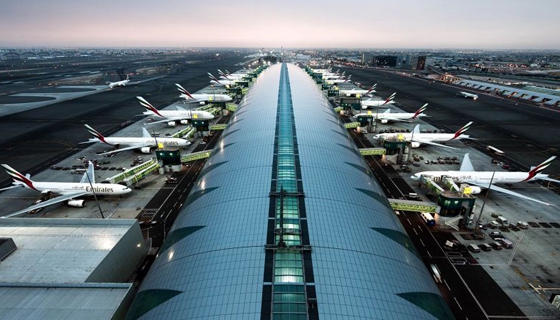The GCC is fueling $100 billion in airport expansion and construction projects on the back of a projected around five per cent annual surge in passenger numbers over the next 20 years.
The International Air Transport Association is projecting that Middle East passengers would grow by 4.9 per cent per year to 2034.
The GCC countries are bracing for the traffic growth with new airports and expansion of the existing ones. According to Deloitte, projects are under way in the UAE, Bahrain, Saudi Arabia, Kuwait, Oman and Qatar.
Dubai International Airport is the world's busiest international airport, and Al Maktoum International Airport, currently budgeted at $32 billion and anticipated to be the biggest airport in the world, is set to have one of the world's largest capacities at 160 million annual passengers.
Abu Dhabi International Airport is set to reach 40 million passengers by 2017 with the new Midfield Terminal.
The new Muscat International Airport will handle around 12 million passengers annually, more than double its current strength.
Sharjah Airport is also preparing for a phased expansion that will help double its existing capacity.
Kuwait awarded a contract worth $4.8 billion to a local company for the expansion of the country's only international airport. The involves a new terminal and a runway in addition to around 30 gates to boost the facility's capacity from the current seven million passengers to 13 million in 2016. The airport's capacity is slated to increase to 25 million passengers by 2025.
Bahrain International Airport is also set for an overhaul as it moves to upgrade its facilities and expand passenger capacity through an airport modernization program. The cost of the upgrade has been estimated to be around $2 billion and once completed, will boost capacity to 13.5 million passengers a year. "As Middle East airports expand, aesthetic and acoustic considerations are vital for growing passenger numbers, and providing a high-quality traveler experience, whether waiting, dining, or shopping. Good acoustics are essential for a serene airport atmosphere, such as by reducing loudspeaker sound, and perforated ceilings to minimize the noise of people talking or walking," said Mohamed Nawarah, Country Manager – Kingdom of Saudi Arabia at Hunter Douglas, the international airport consultancy based in The Netherlands.
Hunter Douglas has advised many of the world's leading airports, including Brussels Airport in Belgium, Dusseldorf Airport and Frankfurt Airport in Germany, Gdansk Lech Walesa Airport and Wroclaw Airport in Poland, Madeira Airport in Spain, and Manchester Airport Terminal 1 in the United Kingdom.
Khaleej Times
24 June






















































